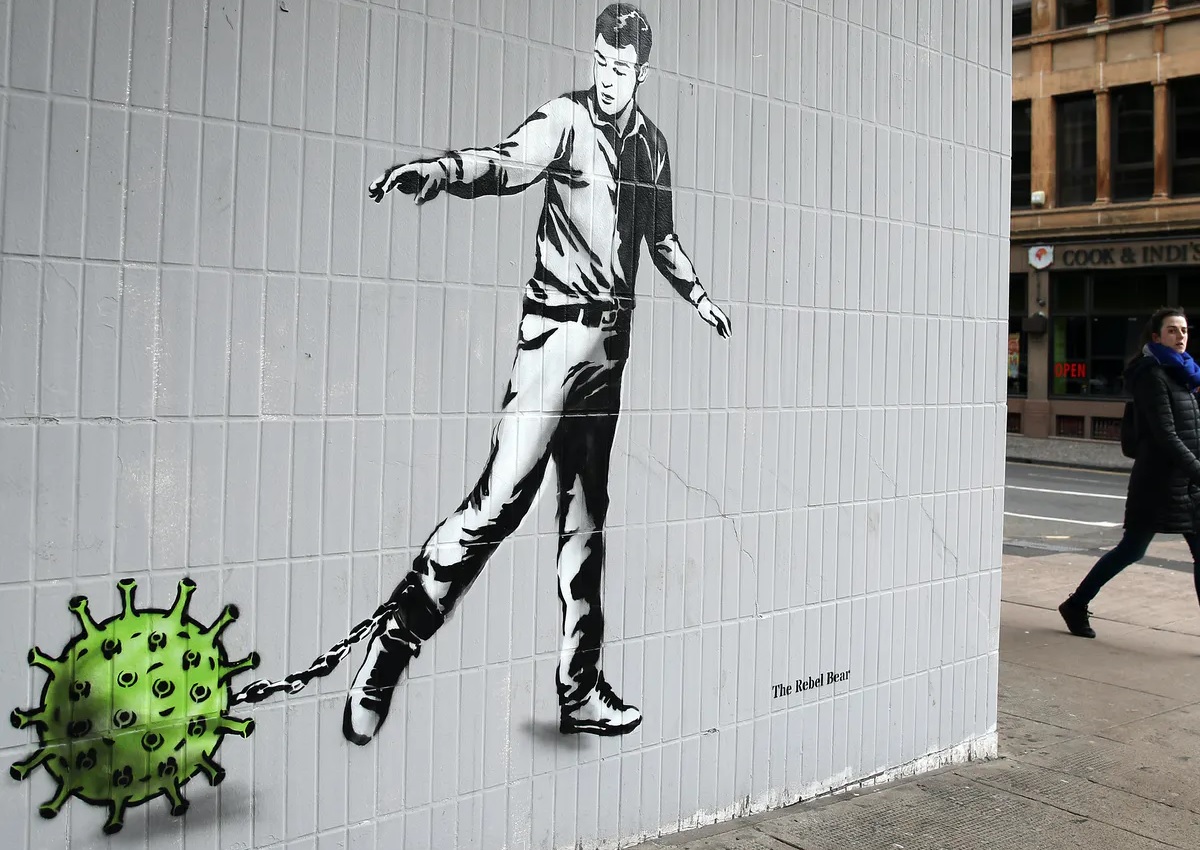RIO DE JANEIRO, BRAZIL – The emergence of the first cases in which an individual was again infected with the coronavirus after overcoming the disease did not come as a surprise to scientists.
On Monday, researchers from the University of Hong Kong announced that genetic tests confirmed that a patient in the region, who had been infected with a strain of the virus in April, later became infected with another strain in August after traveling to Spain.
The Netherlands and Belgium have also announced one case each, although the results have not yet been published in scientific journals, as with the Hong Kong case. Still lacking data and not knowing whether these reinfections are exceptional or frequent, these are some of the conclusions that can be drawn from these cases.

Is this bad news?
Not necessarily. Other respiratory infections, such as coryzae produced by other coronaviruses, can be repeated several times, and that SARS-CoV-2 would behave this way was already expected.
For now, these are exceptional cases after millions of infections all over the world, but even if there is a reduction in immunity over time, the good news is that both in the Hong Kong and Belgian patients the second infection was much lighter than the first.
In the case of the Asian patient, it was completely asymptomatic. Among the bad news would be “that the time between two infections was expected to be longer” than the three or four months in the cases studied, as the Belgian virologist Marc Van Ranst pointed out.
Is it likely for reinfections to be frequent?
“It seems that it is not a very common fact until now. If it were, the numbers of infected people would be much higher, particularly among those who have been in contact with infected patients, such as healthcare professionals, where it was found that they did have the disease again,” notes María Montoya, head of the Viral Immunology group at the Margarita Salas Biological Research Center, linked to the CSIC (Spanish scientific research agency).
However, “if the reinfection is due to the fact that the immunity produced in the first infection decreased, we will now begin to see more reinfections,” she adds.
What would a common reinfection imply for the development of vaccines?
Federico Martinón-Torres, head of the Paediatrics Department at the Santiago de Compostela Clinical University Hospital (Spain) and vaccine expert, warns that it is first necessary “to wait and see if more cases occur or if it is something exceptional.”
If the defenses of people who have experienced the disease decline over time, it would imply that the vaccine “would have a limited duration and revaccination would be required,” as is the case with many of the vaccines currently used.
But the fact that immunity decreases over time and fails to prevent a new reinfection does not necessarily mean that we are left unprotected. If Hong Kong and Belgium were the norm, vaccines might not make the coronavirus disappear, but they would dramatically reduce its impact, as many other vaccines do.
“One important benefit of vaccines is the protection against disease transmission to others,” notes Martinón-Torres. “This is something that happens with the pneumococcal conjugate vaccine, which produces collective protection, preventing the subject from transmitting the disease to others. In the case of the coronavirus, this would not be possible, at least in the long term.”
However, one of the most important aspects of the vaccines we already use is the protection against serious forms of diseases. “The flu vaccine does not prevent the disease, but protects against its most severe forms,” he explains. The rotavirus vaccine, which produces dangerous forms of gastroenteritis in children, does not block the disease but makes it milder. The immune system’s response to these isolated cases suggests that vaccines against the coronavirus would not make the disease disappear, but would make it milder.
Does it render herd immunity impossible?
The emergence of reinfected people would make it difficult to reach a lasting herd immunity, both from the protection produced by overcoming the disease as well as from vaccines. However, the possibility of third-party contamination by someone infected for the second time is not yet known.
In a number of studies with the coronavirus that causes catarrh, it was found that, after the first infection, the time a patient spends producing the virus and its amount decreases. Moreover, although the virus would continue to spread among people, with no herd immunity occurring, the probability that Covid-19 will be increasingly milder would produce a similar effect from a social perspective.
Source: El País

